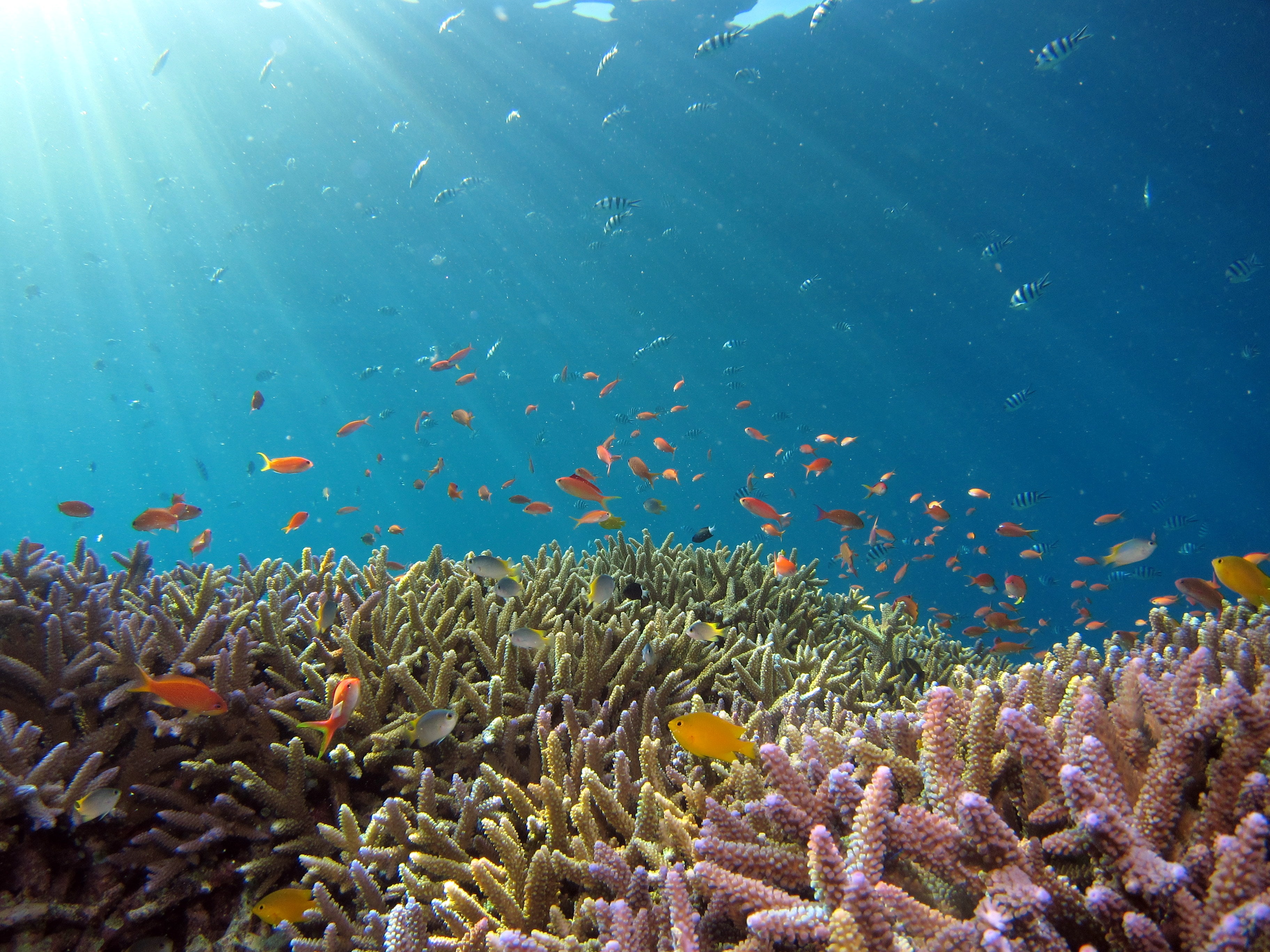If we can invest at scale in nature, we can help to protect it. And if we can protect nature, we can save the world. SYSTEMIQ and BNP Paribas are among the partners developing the Global Fund for Coral Reefs. Targeting an initial $625m, the UN-backed fund hopes to mobilize an additional $2-3 billion in public and private capital for reef-positive businesses around the world. Katherine Stodulka and Diletta Giuliani explain how it works.
Coral reefs are at the frontline of climate change. We picture them as vibrantly and abundantly alive, but around the world they are dying: bleached by rising sea temperatures, decaying from pollution, over-fished and under-invested. Given their immense biodiversity value – and their importance to people’s livelihoods, food security and safety – we cannot afford to lose them all. Worth roughly 5% of global GDP, employing more than 200 million people, protecting more than $6bn of coastal infrastructure and producing over 50% of our oxygen, investing in vital ocean ecosystems is as much about economic stability and growth as it is about our own long-term survival.
The Global Fund for Coral Reefs (GFCR) is the first UN Multi-Partner Trust Fund devoted to SDG 14: Life below Water. It focuses on the world’s most resilient coral reefs in emerging markets – from large coastal countries like Indonesia, Kenya and Brazil to small island nations like Fiji and the Solomon Islands.
The Fund incubates and invests in solutions that protect, restore and ensure better management of these critical ocean assets. Ecotourism, sustainable fisheries, waste management infrastructure, monitoring technology and restoration schemes are all part of the pipeline.
The Fund emphasises solutions that help build physical and financial resilience for communities who depend on reefs – many of these communities are vulnerable to the immediate physical impact of climate-related natural disasters like flooding and storms, and have been hit hard by Covid with the loss of tourism revenues and disruption to supply chains. As a blended finance vehicle, GFCR can invest in more nascent sustainable business models and support projects in higher-risk countries – using catalytic capital from foundations and donor countries to support the development of a high-impact pipeline.
“This is not just about putting money into direct conservation, but about supporting businesses and projects that will have long-lasting and positive effect on the reefs”, explains Diletta Giuliani, who leads on the nature finance work at SYSTEMIQ.
As a technical partner, SYSTEMIQ’s role includes helping structure the Fund’s investment window, coordinating the partners and identifying potential funding projects. Two national governments have already committed major grants, in addition to the Fund’s private philanthropic support, unlocking pipeline development and de-risking projects.
The plan is to make grant, debt and equity investments in established businesses and projects, but also to support novel business solutions including payments for ecosystem services. This breadth of interventions reflects a whole-system approach that is fundamental to the Fund’s vision: while investing in reefs is critical to tackling biodiversity loss and climate change, it can also generate new opportunities which can support more equitable livelihoods, mobilise capital for Covid recovery, and strengthen food security. This, in turn, helps build financial and physical resilience for reef-reliant communities, especially women, who are disproportionately affected by the impacts of climate change and make up 75% of people who are displaced due to climate-related events like sea level rise, flooding and natural disasters.
The big challenge for the Fund – and for nature-positive business models more widely – is to scale up what works and accelerate investment; adaptation finance on this scale remains rare. “Investing in nature is critical for people and planet”, explains Katherine Stodulka, the Director of the Blended Finance Taskforce and one of the key figures behind its campaign to mobilise finance for nature. “Banks and investors are making massive commitments to finance natural solutions, invest in carbon, and reach net zero. But most people don’t know how to get there.” The world of environmental finance will be watching the Global Fund for Coral Reefs closely; its partnership of private philanthropy, institutional investors and UN support could provide a big part of the answer.

